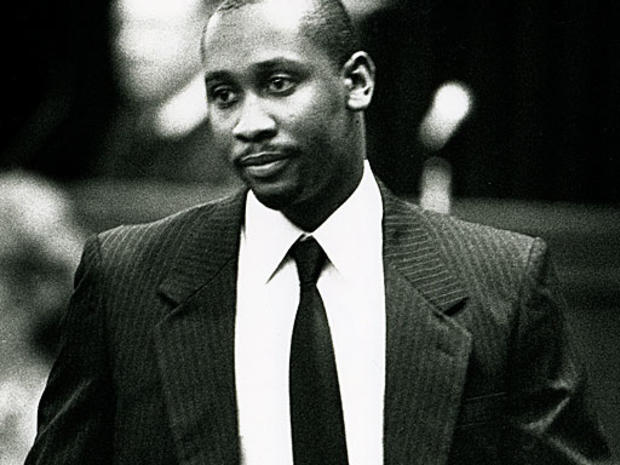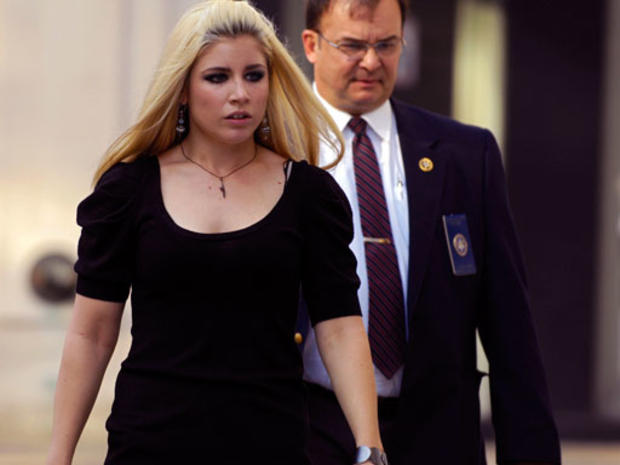Rare Death Row Innocence Appeal to U.S. Supreme Court; Troy Davis Was Convicted of Killing Cop
SAVANNAH, Ga. (CBS/AP) Troy Davis, on death row in Georgia since his 1991 conviction for the murder of Savannah police officer Mark MacPhail, sat in white prison scrubs with chains on his waist, as his lawyers presented their case to the U.S. Supreme Court in a rare innocence appeal Wednesday.
Davis won the rare opportunity to prove his innocence in the nearly 20-year-old case after his attorneys presented arguments that witnesses were pressured by police to implicate Davis and said they had additional witnesses who would testify that another man confessed after Davis' conviction.
Defense lawyers called nine witnesses to the stand to support that claim, before resting their case Wednesday. One witness, a former neighbor of Davis, Jeffrey Sapp, who testified in the 1991 trial that Davis described MacPhail's shooting in detail, said Wednesday that police pressured him into making that statement.
"I was so scared that I told them anything that they wanted to hear," Sapp said. "They kept saying, 'Just say Troy told you.'"
Kevin McQueen, who also testified in the 1991 trial, said Wednesday that he concocted the story to get back at Davis because they had a feud in jail while Davis was awaiting trial.
"I made up a lie saying that he told me he shot a police officer," McQueen said. "He never confessed to shooting anybody."
Two witnesses, Anthony Hargrove and Benjamin Gordon, testified that Sylvester Coles -- who was with Davis when the slaying occurred in August 1989 -- later confessed to each of them that he shot MacPhail.
Gordon, who is related to Coles by marriage, testified Coles made a similar confession to him. Gordon also said he witnessed MacPhail's shooting and was certain it was Coles who fired the gun.
Judge William T. Moore said he's highly skeptical of testimony that another man has admitted to shooting MacPhail, because Davis' attorneys did not subpoena the man they say is the real killer.
When pressed by Judge Moore as to why they didn't call Coles, Davis' lawyer Stephen Marsh replied: "There's no reason to believe Mr. Coles is going to come in here and say, 'Yes, I did.'"
Davis has been scheduled for execution but spared three times, though each of his previous appeals has been ultimately rejected.
Federal death penalty appeals usually focus on questions of due process and constitutional rights.

